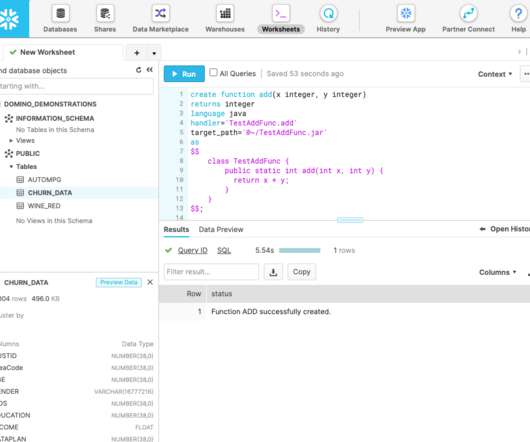Knowledge Graphs 101: The Story (and Benefits) Behind the Hype
Ontotext
NOVEMBER 11, 2024
However, it’s important to note that not every RDF graph is a knowledge graph. For instance, a set of statistical data, e.g. the GDP data for countries, represented in RDF is not a knowledge graph. A graph representation of data is often useful, but it might be unnecessary to capture the semantic knowledge of the data.














Let's personalize your content